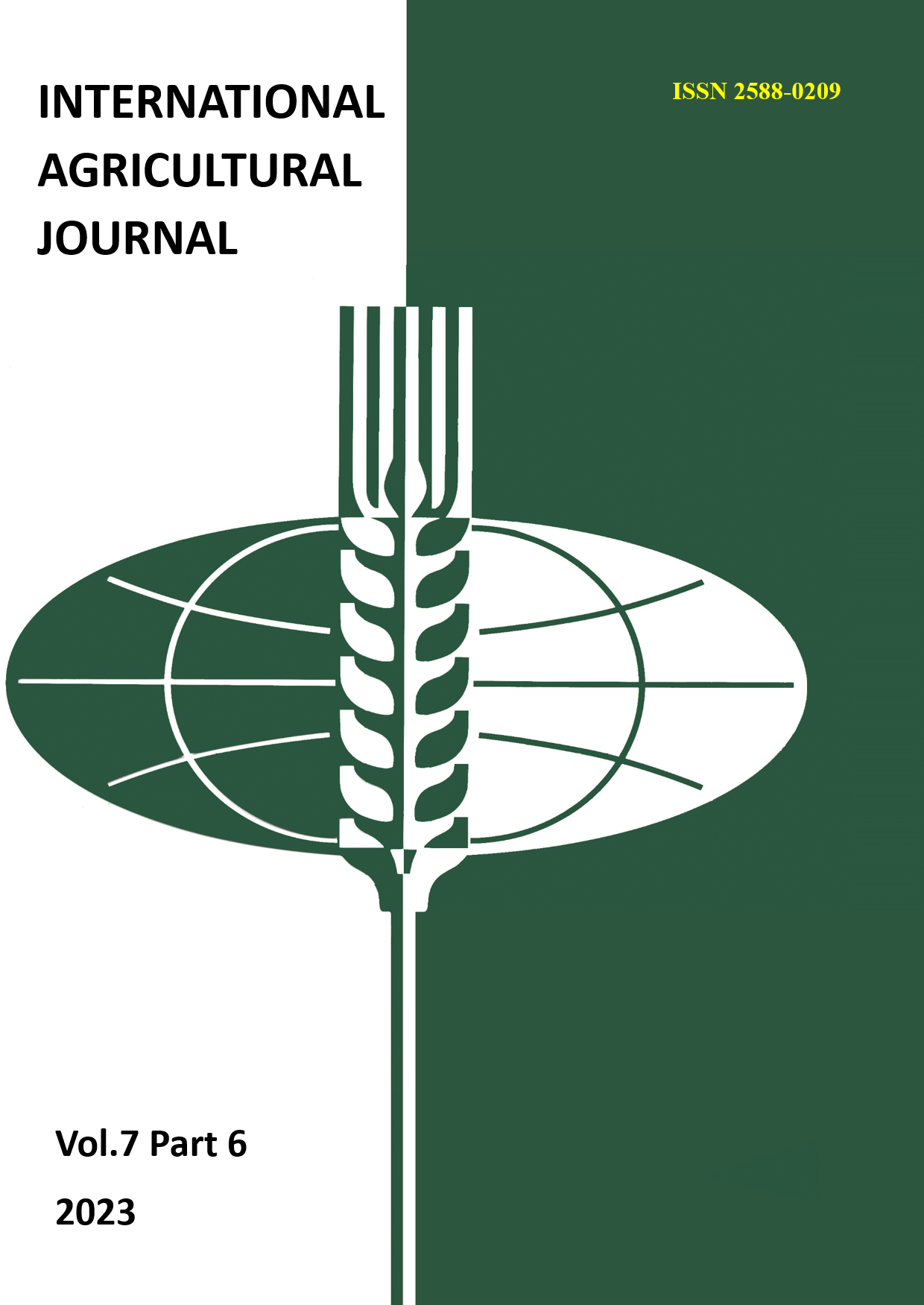CONCEPTUAL MODEL OF ORGANIC FARMING DEVELOPMENT FOR SUSTAINABLE DEVELOPMENT GOALS
Main Article Content
Abstract
Today, out of 8 billion people living on the planet, 800 million are starving, and 2 billion people are not eating, which is quite a significant indicator. It's just about eating so that a person can maintain their vitality. Biotechnologists from all over the world annually present the results they have achieved in the field of food security and the development of alternative food products. The problem is systemic and has a global scale. Nevertheless, there is another problem: the depletion of natural resources and environmental disruption in pursuit of higher rates of food production. Chemistry has become the main driver of the "Green Revolution" in the last century. This solution to the problem was temporary. The use of various kinds of yield "stimulants" in agriculture has ruined the soil, but to this day many large manufacturers use various chemicals in their work. The article will focus on organic farming and the importance of organics for the sustainable development of the country. The author reviewed the development of organic farming, proposed a concept for the development of organic farming for sustainable development.
Article Details
References
2. Ob organicheskoi produktsii i o vnesenii izmenenii v otdel'nye zakonodatel'nye akty Rossiiskoi Federatsii: Federal'nyi zakon ot 3.08.2018 №280-FZ [On Organic Products and on Amendments to Certain Legislative Acts of the Russian Federation: Federal Law No. 280-FZ dated 08/3/2018] [Electronic resource]. – Access mode: http://base .garant.ru/72005268/# friends.
3. Organizatsiya organicheskogo sel'skokhozyaistvennogo proizvodstva v Rossii [Organization of organic agricultural production in Russia]: information edition. – M.: Rosinformagrotekh, 2018. – 124 pp.
4. Otvetstvennoe potreblenie: prostranstvo novykh vozmozhnostei dlya biznesa i opyt rossiiskikh kompanii [Responsible consumption: a space of new business opportunities and the experience of Russian companies] // Institute for Emerging Markets Research at the SKOLKOVO Business School (IEMS). Center for Sustainable Business Development// 2018, 101 p.
5. The official website of the "Fund for support of organic producers" [Electronic resource]. URL: https://organicfund.ru / (date of reference: 09/01/2023-12/01/2023)
6. Official website of the National Organic Union [Electronic resource]. URL: https://rosorganic.ru // (date of reference: 09/01/2023-12/01/2023)
7. Official website of the IFOAM - Organics International [Electronic resource]. URL: https://www.ifoam.bio/ (accessed: 09/01/2023-12/01/2023)
8. Arbenz Markus, Gould David and Stopes Christopher, 2016, Organic 3.0 – for truly sustainable farming and consumption, IFOAM Organics International, Bonn and SOAAN, Bonn.
9. Frederick E. Webster, Jr. Determining the Characteristics of the Socially Conscious Consumer//Journal of Consumer Research, Volume 2, Issue 3, December 1975, Pages 188–196.
10. Scott B. Follows, David Jobber. Environmentally responsible purchase behaviour: a test of a consumer model. // European Journal of Marketing 34,5/6, Pages 723–746.

